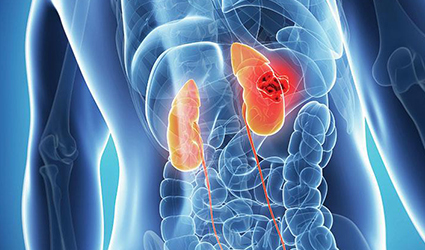Recently Discovered Kidney Cancer Driver could be Future Therapy Target
July 25, 2018
Source: ScienceDaily
 671
671

Scientists from the University of North Carolina Lineberger Comprehensive Cancer Center have discovered a probable remedial target for kidney cancers with the same genetic alteration. It is well-known fact to scientists that this change in the genetic patterns can result in a plethora of blood vessels, which form a channel for nutrients to reach the tumors. Their recent discovery holds a promising new cancer-forming pathway.
An important tumor suppressor gene, VHL is found missing in more than 90 percent of the commonest variant of kidney cancer, which is resultant of a genetic mutation. Scientists detected a new downstream effect of this genetic change that is helping the development of kidney cancer, reported a study published in the journal Science. They discovered that a protein called ZHX2 builds up in excessive amounts in these cells and activates other signals that generate tumors. For clear cell renal cell carcinoma, the most common type of kidney cancer, these findings implicate that ZHX2 could be a potential new therapeutic target.
"If you lose VHL, you will accumulate lots of this ZHX2 protein, which will turn on signals that promote kidney cancer," said UNC Lineberger's Qing Zhang, Ph.D., an assistant professor in the UNC School of Medicine Department of Pathology & Laboratory Medicine and Pharmacology. "This protein could be a potential therapeutic target used to treat kidney cancer on its own or in combination. The next step is to try to figure out how we can target it therapeutically."
By DduRead more on
- Things to Know before Buying Newborn Baby Incubators March 31, 2022
- Highly Resistant Food Poisoning Bug Responds to Antibiotics September 6, 2018
- Smartphone Based Diagnosis to Identify Mosquitoes Transmitting Infection September 5, 2018
- 3 Natural Plant Extracts Manufacturers on Drugdu.com September 4, 2018
- Shenzhen Chuanggan – Health Assessment Facility Supplier September 4, 2018
your submission has already been received.
OK
Subscribe
Please enter a valid Email address!
Submit
The most relevant industry news & insight will be sent to you every two weeks.



